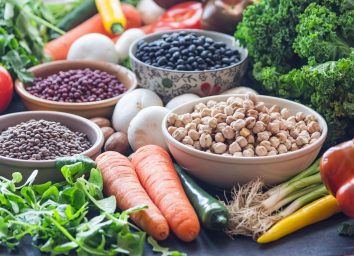The #1 Worst Carb for Your Heart, Say Dietitians

The worst carbohydrate to consume if you are concerned about your heart health is a carbohydrate you consume a lot of that can quickly raise your blood sugar. High blood sugar levels over time can lead to type 2 diabetes and hardening of the blood vessels, known as atherosclerosis.
So, if you’re looking for the poster child of worst carbs for the heart, it has to be sugar-sweetened beverages. Liquid sugar goes down fast and easily and doesn’t take much work to digest.
“Soda and other sugar-sweetened beverages (SSBs) are simple carbohydrates that are released into the bloodstream more quickly than other foods and cause a dramatic increase in blood sugar,” explains Eatthis.com medical board member and registered dietitian Julie Upton, MS, RD, CSSD. “For that reason, I would say soda is the worst carb for your heart health. There are studies that also show that people who drink sugary beverages have higher triglycerides and increased risk for heart disease.”
One of those studies published in 2020 in the Journal of the American Heart Association looked specifically at the association between sugar-sweetened beverage (SSB) consumption and cholesterol profiles of over 6,000 people who were related to the original participants of the famed Framingham Heart Study.
At a four-year-followup, the researchers found that people who drank one or more 12-ounce servings of an SSB had lower levels of high-density lipoprotein (HDL), the so-called “good cholesterol” and increased harmful triglycerides compared with people who drank less than a serving of SSBs monthly.
But what if I don’t drink sweet beverages?

Sugary desserts, candy, fruit juice concentrate, and any food made with table sugar, corn sweeteners, and syrup sugar molecules ending in “ose” like dextrose, fructose, glucose, lactose, maltose, and sucrose will have similar negative effects on the body.
“Excess added sugars contribute to obesity, diabetes, as well as arterial inflammation, which are all linked to cardiovascular disease,” says registered dietitian Katherine Brooking, MS, RD, co-founder with Upton of Appetite for Health. Brooking cites a 15-year JAMA Internal Medicine study, which showed that people who consumed 17% to 21% of their calories from added sugars had a 38% higher risk of dying from cardiovascular disease compared with people who got just 8% of their daily calories from added sugars. Analyzing data from the National Health and Nutrition Examination Survey (NHANES), the researchers demonstrated that about 10% of US adults consumed 25% or more calories from added sugar from 2005 to 2010, far more than is recommended for a healthy diet.
Learn more by reading 4 Drinking Habits Secretly Increasing Blood Sugar.








